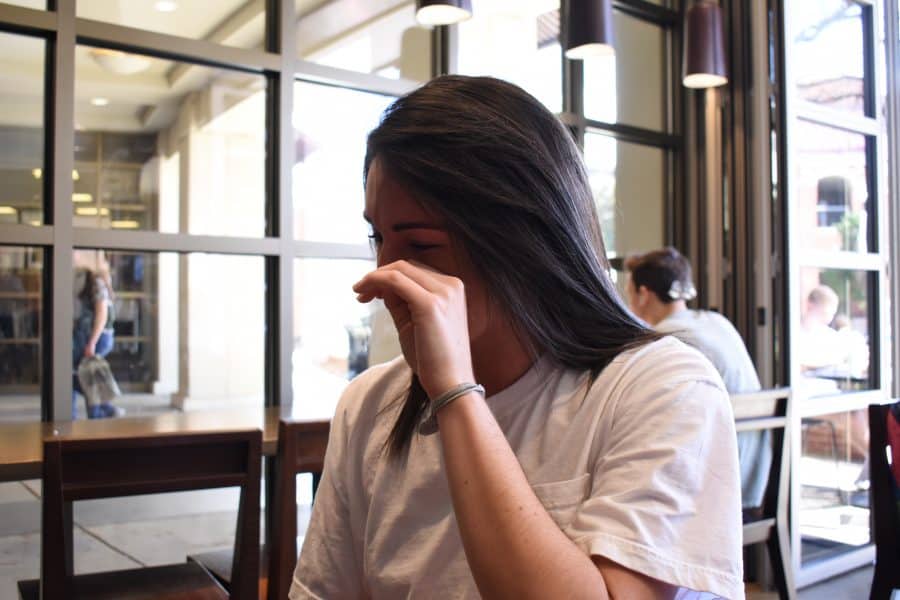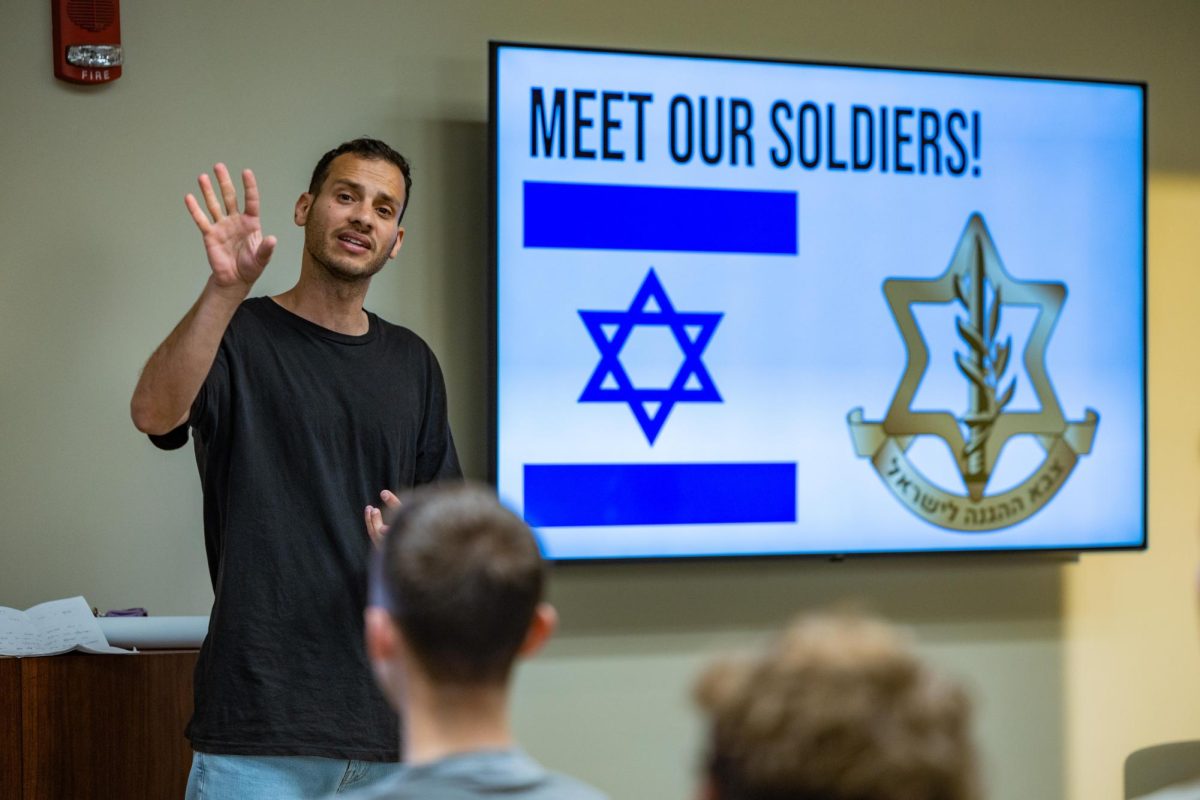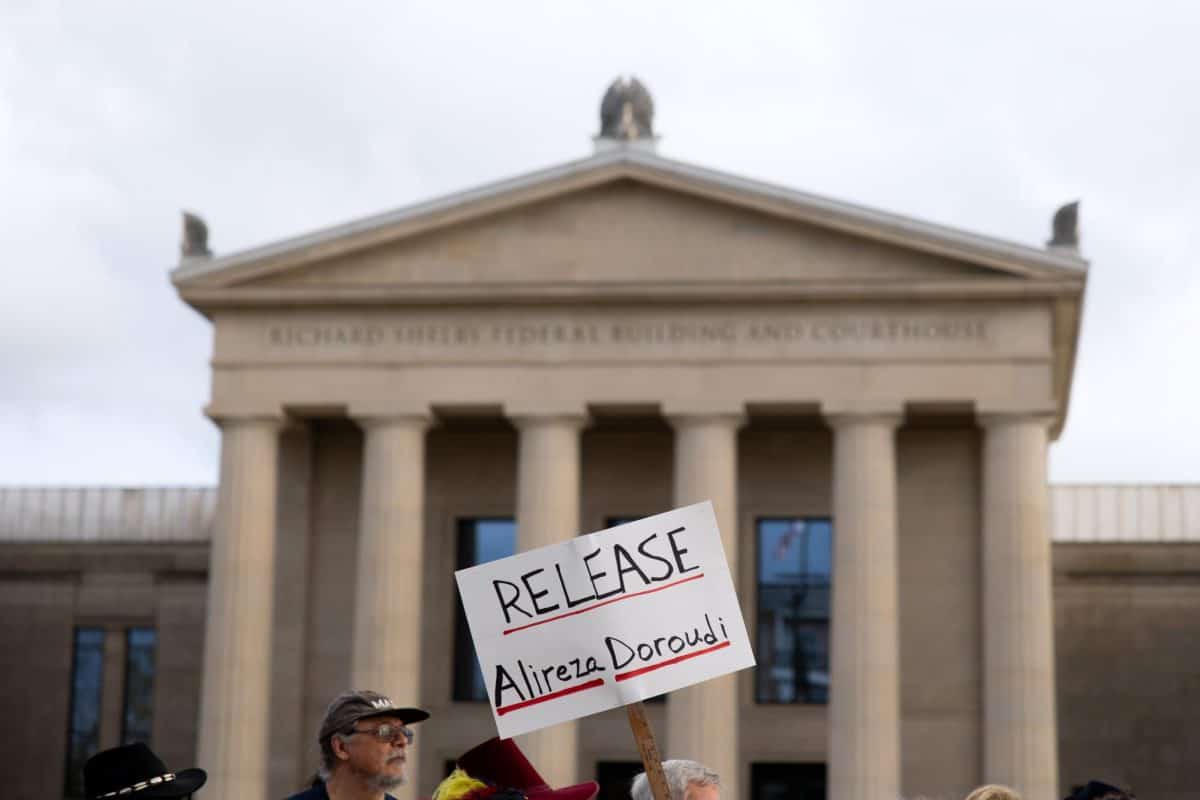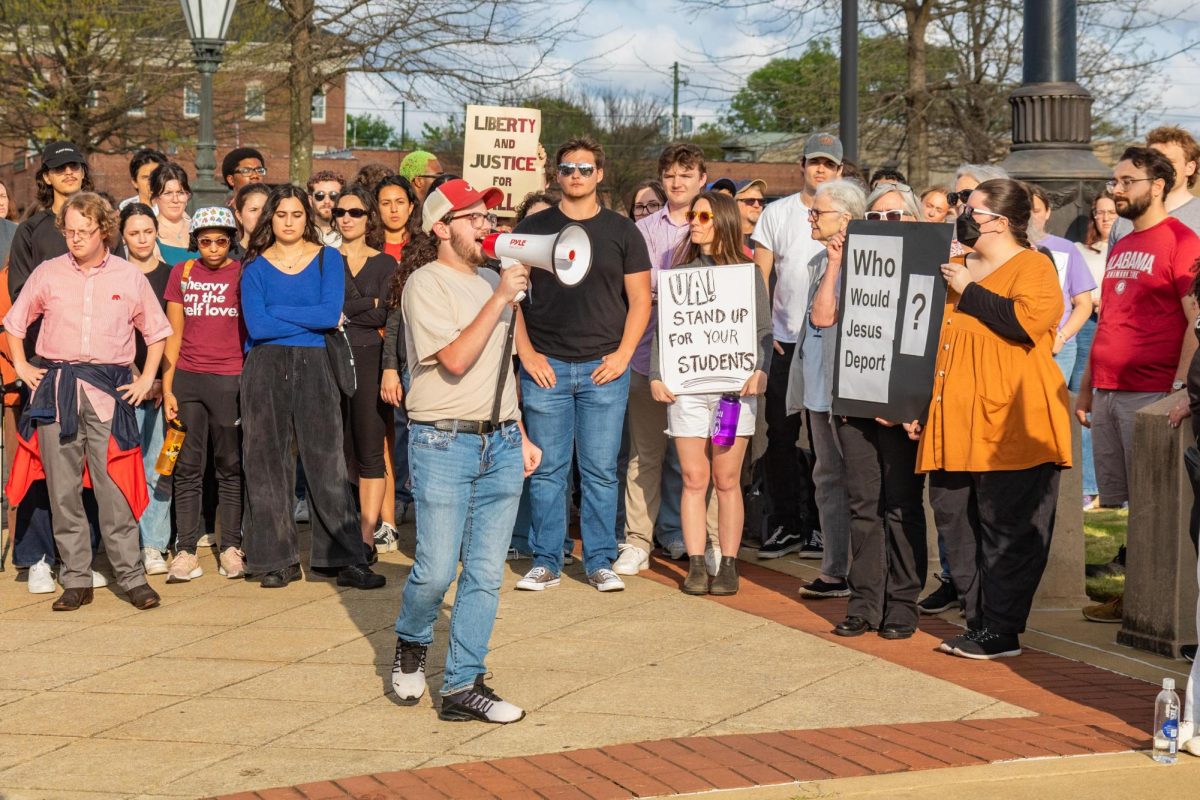Two weeks after the Marjory Stoneman Douglas shooting in Parkland, FL, UA students from Florida still feel the reverberations of the shots fired in their home state.
“I’m better about it now, but I’m constantly on my phone checking what’s going on,” said Rachel Edrich, a senior majoring in communicative disorders. “I want to be up to date about it. How am I not going to be attached to my phone about something that’s going on in my backyard?”
Edrich’s family lives in Windham Lakes, the neighborhood where the shooter was finally apprehended. Edrich is also an alumna of Marjory Stoneman Douglas.
“Now it’s a different level of feelings because it’s my high school, my backyard, my family’s affected by it, friends have been affected by it. It’s just weird to say,” Edrich said.
That Wednesday, Edrich had just exited her mentorship meeting when she realized her phone was drowning in dozens of Facebook notifications and texts from her mom about the shooting. The outpouring of notifications didn’t immediately sink in, however.
“I was in my ideology class, and that was probably the one class I did not pay attention to because I was glued to my phone,” she said. “I actually left the classroom to talk to my parents and I was just crying the entire time because I was just finding out that my cousins, like I said, were in the building.”
Both Edrich’s relatives were uninjured.
“They’re safe,” she said. “They’re home.”
Tyrus McCloud, a freshman majoring in mechanical engineering, grew up in Coral Springs, FL, a neighborhood within Parkland. He experienced the same emotional delay as Edrich. It wasn’t until later that night when other people in a meeting were talking about the shooting that he really pictured the shooting as being in his hometown.
“This is Parkland we’re talking about,” he said. “It started running through my mind, all the stuff I did at school and all the people I knew that went there. That’s when it really started to hit me. So, it took a few days, but yeah, the gravity really started getting me.”
Regardless of emotional distancing, the physical distance for these students affects them.
“I think it feels worse,” McCloud said. “There’s nothing you can do. You just feel lucky, blessed, but the bad kind of blessed or lucky. It shouldn’t be this way you know?”
Edrich said little things on campus, like being added to multiple Facebook support groups, have helped her get along better.
“Just being here is hard, but as I said, the support is fantastic here,” she said.
She also has the help of a toy elephant her mother sent her for Valentine’s day. When she calls her mom in distress, her mom will remind her to hold her elephant and breathe.
Edrich and McCloud also received emails from the University offering counseling services on campus and other support mechanisms available to them.
“It’s nice to show that they care as well,” McCloud said. “Kind of shocking, honestly, but when I thought about it, it made sense.”
For Edrich, her largest support system on campus is the color guard, especially considering this year’s winter guard theme: The Light in the World.
“I was bawling after our run-through, but that’s what the show’s about,” she said. “So to bring that on the floor and show that this is my story – I’m doing it for my high school.”
Edrich will see her high school in person again on spring break, when she plans to go back home.
“I know it’s going to be so hard to go home, to see my school just being like a crime scene,” Edrich said.
McCloud doesn’t think the image will be as drastic as it is now by the time he goes home for spring break.
“By that time, for the most part it should blow over, but at the same time, with the news and the town hall and everything, the movement’s just getting started, so I don’t know,” McCloud said. “Maybe I’ll do something with that.”
While he wouldn’t start up a movement himself, McCloud said he’s amazed by the students of MSD who’ve taken it upon themselves to get the support rolling nationwide.
“Honestly, it makes me proud because those are kids that I grew up with, you know, for my entire stretch of life, and the fact that they started a national movement that quick and the stuff that they said on television, online, it’s some pretty damning stuff, but at the same time it’s what we need,” he said.
Edrich said she’s been drumming up support here for MSD, working with the color guard to send letters and ribbons of support back to the color guard at MSD who lost a member in the shooting.
Jamie Young, a senior majoring in marketing, isn’t from the Parkland area, but the fact that the shooting happened in her home state is enough to make a larger impact on her.
“It felt more tangible because I knew where they were talking about,” she said. “So like closer to home, closer to the heart.”
The location was the only aspect of this shooting that truly seemed different to Young, though.
“I wasn’t shocked,” she said. “I mean it happens all the time now. Obviously, it’s heartbreaking and I’m from Florida, so it’s a little closer, but I wasn’t shocked it was an AR-15.”
On the topic of guns, all three students agree that something has to change.
“No one needs an AR-15, honestly,” Young said. “I come from a gun-owning family; everyone hunts. My nephew shot his first deer this past deer season, but it wasn’t with an AR-15.”
McCloud’s family also has guns, and he agrees with Young entirely.
“My dad has a gun, so banning guns, I can’t do it; my parents have one – I’d be a hypocrite,” McCloud said. “But definitely assault rifles, I don’t see the point of them; their point is to kill. I think if you have a hunting license, get a hunting gun, but that’s about as far as that can go. Normal people should be limited to shotguns like my father has, or a normal pistol, but that’s it.”
Edrich said she isn’t super well-versed in the area of guns, but she knows something needs to change. She just doesn’t know how.
“I don’t know, to be honest,” Edrich said. “I’m not a big fan of guns. I feel like right now I don’t know how I can change it, but I stand with Stoneman and their decision.”
Young is more pessimistic in her view for change.
“It’s going to happen again, because if there is reform, it’s not going to happen fast enough,” she said.
No matter what policy change the future holds, if any, home will always be home for people like Edrich, proud of her high school Eagles.
“I’m proud to be an Eagle,” Edrich said. “I’ll always be an Eagle. It doesn’t matter where anybody is. That’s something that, at this time, everybody needs.”









